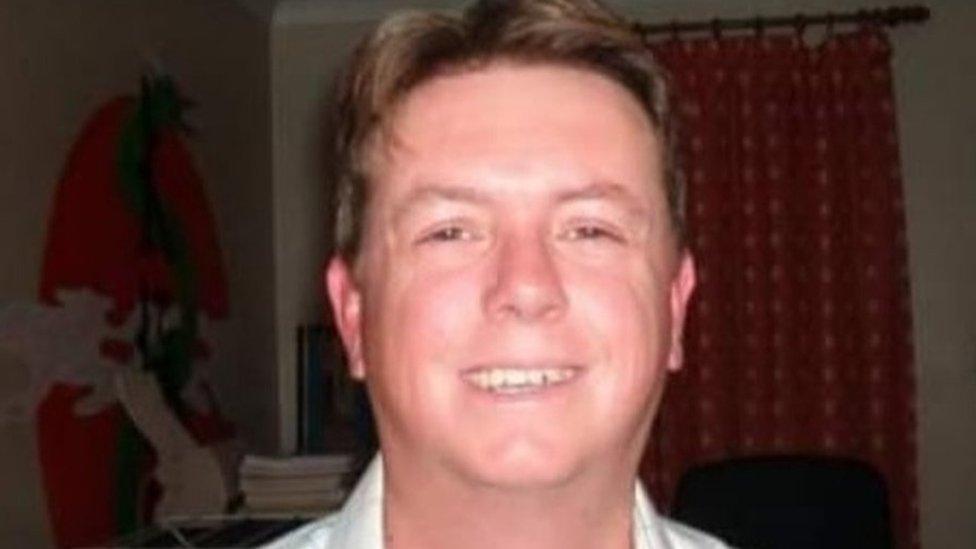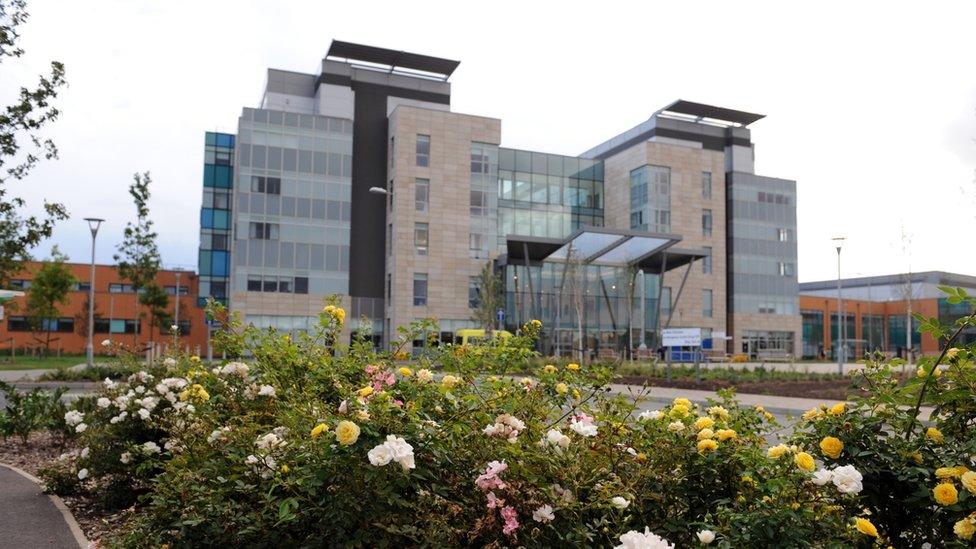Peterborough City Hospital: Ex-doctor warned over treatment withdrawal
- Published

Simon Scott died with acute myeloid leukaemia in January 2016
A consultant anaesthetist who made a "hasty" decision to withdraw treatment from a leukaemia patient has been issued a warning by a misconduct panel.
Dr Andrew Gregg worked at Peterborough City Hospital, where 41-year-old Simon Scott died in January 2016.
A misconduct panel found Dr Gregg "failed to adequately consult with any clinical colleagues regarding [the] decision to withdraw active treatment".
It warned him his conduct "must not be repeated".
The panel said a lawyer for Dr Gregg submitted he "had made express apologies to all those affected by his actions".
It found his "fitness to practise is not currently impaired by reason of his misconduct".
Speaking on behalf of Mr Scott's family, Tim Deeming from Tees Law said: "They are incredibly disappointed by the outcome and hope that the coroner's inquest in due course will be a full, frank and fearless investigation into all of the circumstances."
Dr Gregg worked for North West Anglia NHS Foundation Trust from 2003 but was suspended in 2016 and subsequently dismissed from the trust in 2019.
He currently works at the Queen Elizabeth Hospital King's Lynn in Norfolk.
At a medical practitioners tribunal service hearing, Dr Gregg admitted his decision to withdraw active treatment from Patient A, which the BBC understands to be Mr Scott, was "hasty" and "prevented Patient A from having a realistic prospect of short-term survival".
Mr Scott, from Oakham in Rutland, died on 4 January 2016.

Dr Gregg worked at Peterborough City Hospital
The panel found: "Dr Gregg's failure to consult with colleagues resulted in a hasty decision to withdraw active treatment which would inevitably result in Patient A's death.
"The tribunal found that it was a serious falling short of the standards expected, irrespective of whether [a multi-disciplinary team meeting] would, in due course, have reached the same decision to withdraw care from Patient A."
The panel was told by Jeremy Hyam QC, representing Dr Gregg, that the anaesthetist "has acknowledged the proper standards of care that should have been given to Patient A, in that he should have had a more in-depth discussion with colleagues and that this might have resulted in delaying the decision to withdraw Patient A's treatment".
The panel said Dr Gregg had "demonstrated a high level of meaningful insight into his failings" and "six years had elapsed without there being any repetition of Dr Gregg's misconduct".
But the panel issued him a warning stating: "It was determined and found proved that; on 4 January 2016, you decided to withdraw active treatment from Patient A which was hasty, and that you failed to adequately consult with any clinical colleagues regarding your decision to withdraw active treatment, including Patient A's consultant haematologist.
"This conduct does not meet with the standards required of a doctor and amounted to misconduct. It risks bringing the profession into disrepute and it must not be repeated."
In December and January the panel heard Dr Gregg had admitted increasing drug levels in prescriptions in patients and had made a number of "comments of an inappropriate nature" about a patient to a nurse, including words to the effect that they were "a hopeless alcoholic" and was "a drain on the hospital and NHS".
But the panel found his actions only amounted to misconduct in relation to Mr Scott.
The BBC has approached Dr Gregg for comment.

Find BBC News: East of England on Facebook, external, Instagram, external and Twitter, external. If you have a story suggestion email eastofenglandnews@bbc.co.uk, external
Related topics
- Published21 January 2022

- Published11 January 2022
